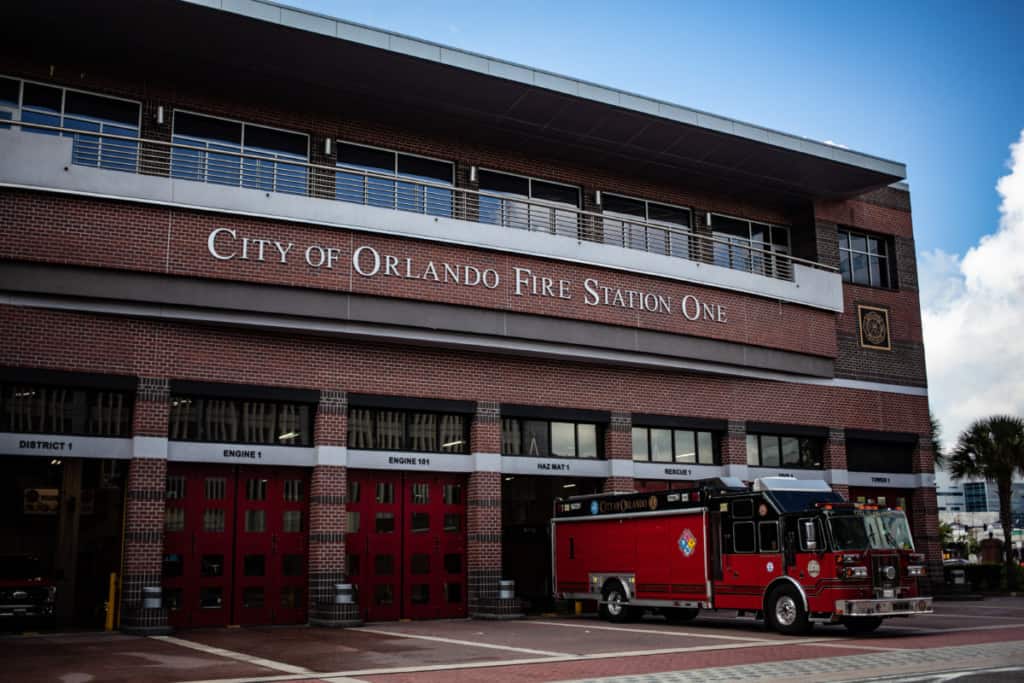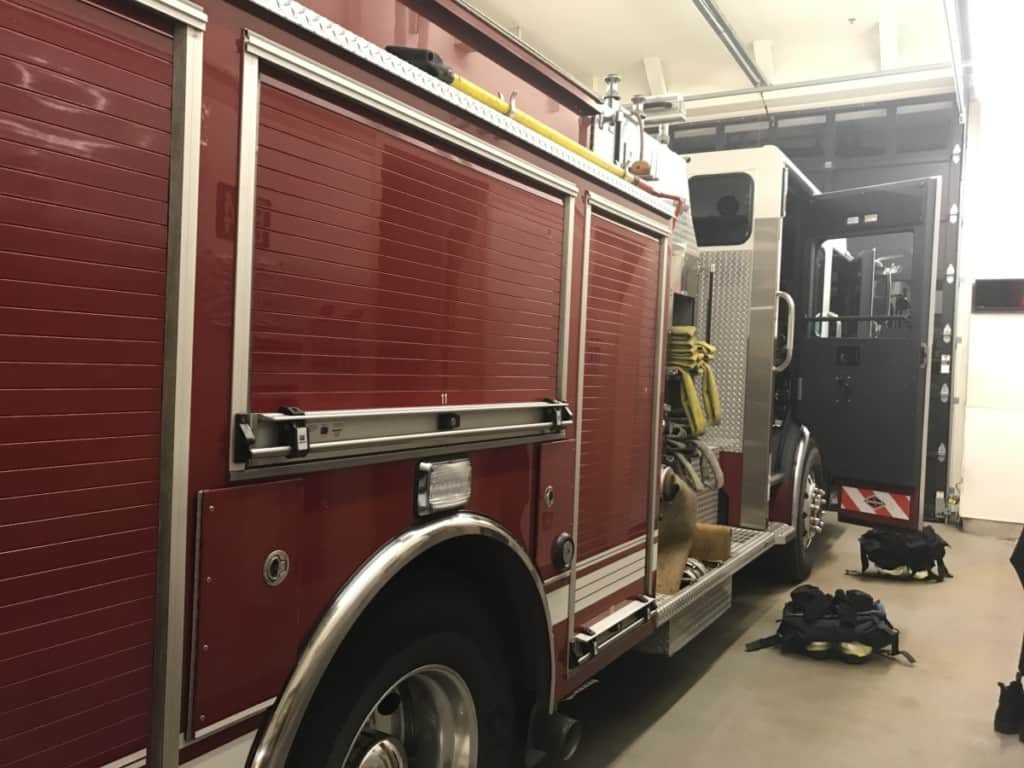Have you heard the term “Junior Firefighter”? Does that just mean a young or new firefighter? Actually, no. Is it the same as a fire explorer or fire cadet?
A Junior Firefighter is a youth development program run by the fire department. It is designed to teach young people about firefighting and other emergency services while building important life skills. It is also used to help future firefighter recruitment.
Junior firefighter programs are great for learning about the fire service. We will look into what these programs are like, what junior firefighters get to do, what skills and qualities these programs help to develop, and whether a junior firefighter program is right for you.
Your # 1 priority is keeping your family safe. As a firefighter, I recommend everyone has updated smoke detectors that don’t require battery changes, like these ones from Kidde, a fire extinguisher, like this one from Amerex, and a fire escape ladder if you have bedrooms above the first floor, I recommend this one from Hausse.
Here is an article on how to prepare to become a career firefighter, once you are old enough to do so: How to Become a Firefighter: The Complete Guide
What Are Junior Firefighters?
In order to become a firefighter, among other requirements, there is a minimum age: usually 18 or 21 years old. Sometimes volunteer firefighters can start at 16 years old. So what if you are interested in the fire service and want to see what it is like, but you aren’t 16 yet?
A junior firefighter can be as young as 9 years old! This isn’t the norm, but these programs allow younger people the opportunity to get involved in the fire service.
A junior firefighter program trains and teaches young adults basic firefighting skills. These programs use fire service classes and drills to help develop qualities like leadership, a strong work ethic, self-confidence, and teamwork.
They can also give the participants an idea of what being a professional firefighter is really like and whether or not it is a career they would like to pursue.
The entry requirements for a junior firefighter can vary from one department to the next, but some of the usual qualifications are:
- Be 14 to 21 years old
- Enrolled in high school or have a high school diploma (or GED)
- Have a G.P.A. 2.0 or above
- Written permission from parents if you are under 18
- Commit to attending a minimum number of participation hours
Junior firefighters are frequently provided with uniforms and firefighter Personal Protective Gear (P.P.E.). They are expected to attend the training and classes provided. Though it varies, many departments will hold a class or drill for a few hours twice a month. (Ex. every other Sunday for 3-4 hours). There is no need to have any previous knowledge of the fire service, just an interest and the willingness to learn.
There are some of these types of programs that will hold a mini Fire Academy for the junior firefighters. This usually means more frequent training for a few weeks to teach the essential skills. These are usually during the summertime.
There are even some junior firefighting programs that will give you credits for the training and classes you complete in the program. These credits can sometimes be used towards your high school diploma or even college credits for those who have graduated high school. This is not always the case and you will have to check with your local programs and your school.
What Do They Get to Do?
As a junior firefighter, you will be taught a variety of fire fighting skills. Fighting real fires and responding to calls can be dangerous, so junior firefighters will be limited in what they are allowed to do. However, you may be surprised at the tasks you can learn to perform.
Here is video to see what it is like to be a Junior Firefighter:
You may learn to quickly don (put on) your protective gear and clothing (called turnouts or bunker gear), pull and deploy hose-lines for simulated firefighting, raise, extend and climb ladders, tie firefighter specific knots, use a fire extinguisher, roll and load hose, rope rescue techniques, basic first aid skills, and fire safety and prevention skills.
I have even heard that some departments will let the more experienced junior firefighters, under supervision, use power tools like chainsaws and fans or even put out small, controlled fires, but that may not be common.
All those tasks are taught and performed in a controlled training environment. Once a junior firefighter has a certain amount of training, they may be allowed to ride-along on a fire engine and respond to calls, but this can really depend on each department’s rules.
However, they probably won’t be fighting fires and or be involved with other dangerous tasks. But they may help with moving equipment or cleaning up after a fire.
Another part of being a junior firefighter can be about community involvement. They can be asked to help with events and programs to help the local community. Things like pancake breakfasts, fire station open houses, fundraisers, or other city events. As a junior firefighter, you will learn about the importance of volunteering your time and helping others.
What Skills Do These Programs Teach?
As a junior firefighter, you will be coached through many different tasks. Most of these will be very new to you, some can even be pretty intimidating. But don’t be afraid, the firefighters you are working with will make sure everything is as safe as possible.
You may feel pushed a little outside of your comfort zone, but this is great for improving your self-confidence. You may even surprise yourself when you see what you are capable of.
You will learn how important teamwork is in the fire service. Firefighters really on each other in many potentially dangerous situations and being able to trust and count on each other is especially important. They must work together to accomplish a wide variety of different tasks. And as a junior firefighter, you will learn how to work together with the firefighters, as well as your peers.
As a junior firefighter, you will see the examples of leadership of the firefighters who are teaching you. You will get to see how the fire service is a para-military organization and everyone needs to know their role. These examples of leadership can help to develop these qualities in the junior firefighters.
Being a firefighter can be hard work! Not just the manual labor involved in fighting fires, but being required to be proficient in a large variety of skills and topics. Junior firefighting can help to develop a strong work ethic as this is a vital quality in all good firefighters.
Should You Become a Junior Firefighter?

The decision to become a junior firefighter will really depend on you. Are you curious about what being a firefighter is really like? Would you like to try pulling hoses and raises ladders?
Are you interested in emergency medicine or becoming an EMT? Do you want to be a part of the community and help people? Do you like being physically active and challenging yourself? If you answer yes to any of these or are intrigued by anything else that was discussed in this article, don’t hesitate and sign up!
If you are interested, search for junior firefighter or fire cadet programs in your area. Each department that runs one of these programs will have different requirements and expectations.
Most departments will take new people into the program once or twice a year. You will usually need to submit an application, along with proof that you meet all the requirements. You may be required to have an interview to learn about why you want to be a part of the program.
What Is a Fire Explorer?
The term Fire Explorer or Fire Exploring is a program very similar to junior firefighting. In some places, the terms are used interchangeably. However, many times a fire explorer program is aimed at younger teens than a junior firefighter program.
Fire explorers are sometimes in the 12 to 15-year-old range, whereas the junior firefighter programs may require you to be 16 to 21 years old. These age ranges can be different from one place to the next. Along with this age difference, the skills and activities in the program typically are more basic to fit the younger participants. But fire explorers still get to learn many exciting firefighting skills!
What Is a Fire Cadet?
A Fire Cadet is usually just another term to describe a junior firefighter. In some departments, fire cadet programs are aimed at young adults who are a little older and are trained and permitted to do some more advanced tasks and skills.

